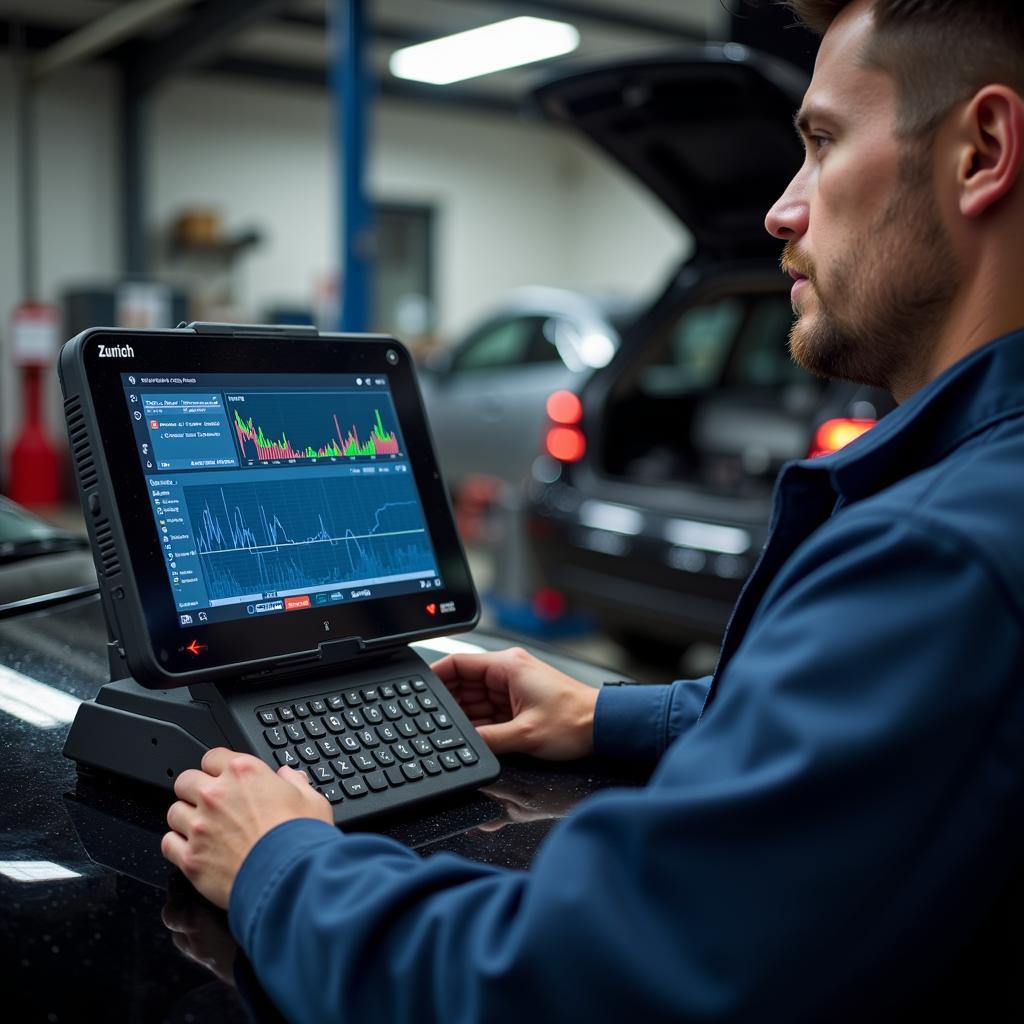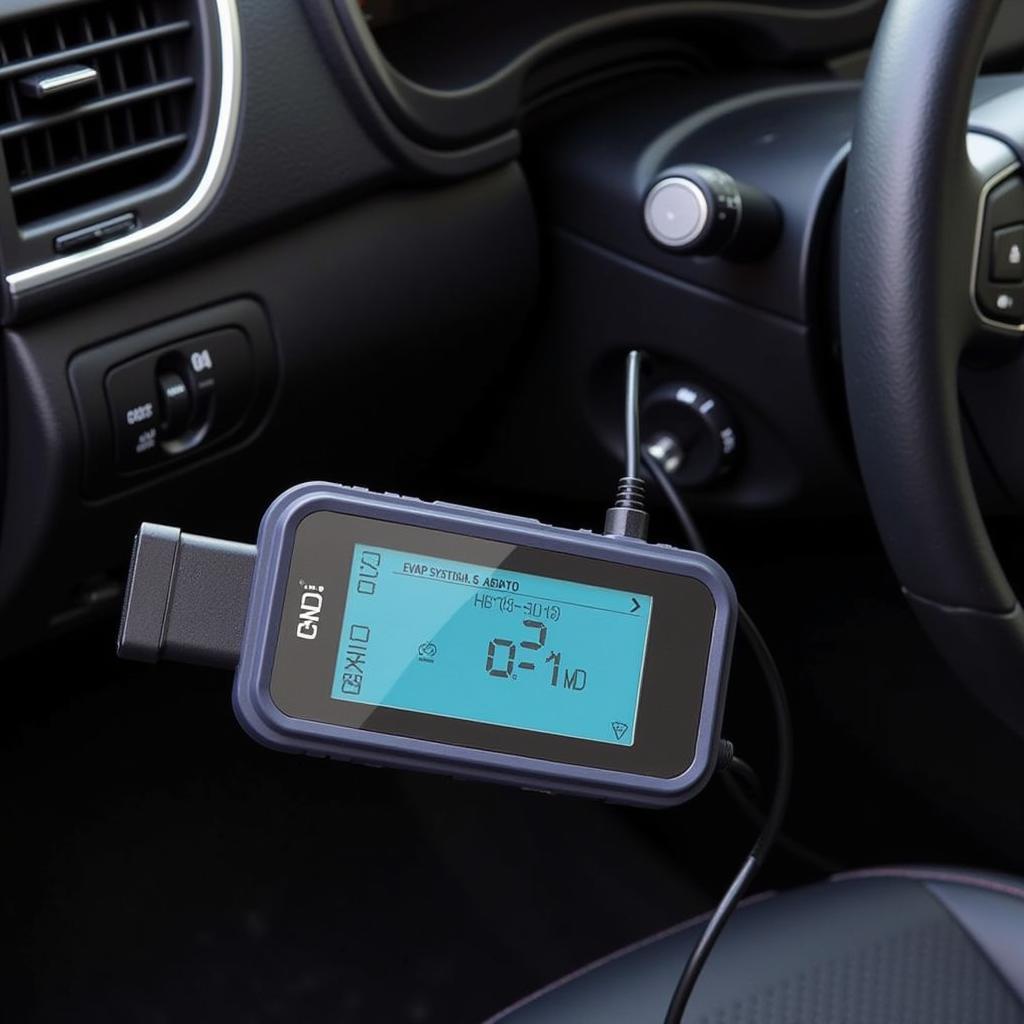Finding the best scan tool for your needs in 2019 can feel like navigating a maze. With so many options available, each boasting different features and price points, it’s easy to feel overwhelmed. Whether you’re a seasoned mechanic or a car enthusiast looking to diagnose your vehicle, choosing the right scan tool is crucial. This comprehensive guide will equip you with the knowledge to make an informed decision, ensuring you find the perfect tool for your 2019 vehicle.
Understanding Your Needs: Why a Scan Tool is Essential
Before diving into the specifics of the best scan tools of 2019, let’s first understand what they are and why they’re indispensable for modern vehicles.
A scan tool, also known as an OBD2 scanner, is an electronic device that connects to your vehicle’s onboard computer system. This system, known as OBD-II (On-Board Diagnostics), monitors various aspects of your car’s performance, including engine function, emissions, transmission, and more.
[image-1|obd2-scanner-connected-to-car|OBD2 scanner connected to a car| A close-up image of an OBD2 scanner plugged into the diagnostic port of a car, displaying real-time data on its screen. The image highlights the ease of use and direct connection these tools offer.]
When your vehicle experiences an issue, the OBD-II system stores a diagnostic trouble code (DTC) in its memory. A scan tool allows you to:
- Read and clear DTCs: Identify the root cause of warning lights on your dashboard.
- View live data streams: Monitor real-time sensor readings, such as engine RPM, coolant temperature, and oxygen sensor voltage.
- Perform advanced functions: Depending on the tool’s capabilities, you might be able to access functions like ABS bleeding, key programming, and module coding.
Key Features to Consider in the Best Scan Tools of 2019
Not all scan tools are created equal. Here are some essential features to consider when making your selection in 2019:
1. Vehicle Compatibility
The first and foremost consideration is compatibility. Ensure the scan tool you choose supports your vehicle’s make, model, and year. While most 2019 vehicles use the standard OBD2 protocol, some may require manufacturer-specific software.
2. Functionality and Features
Scan tools come with varying capabilities. Consider what you need from the tool:
- Basic Code Readers: These entry-level tools can read and clear basic DTCs, making them suitable for casual users.
- Mid-Range Scanners: Offer additional features like live data streaming, freeze frame data, and some bi-directional control.
- Professional-Grade Scan Tools: Provide comprehensive functionality, including advanced diagnostics, programming capabilities, and access to manufacturer-specific systems.
3. User Interface and Display
A user-friendly interface is essential for efficient diagnostics. Look for a scan tool with:
- Intuitive menus and navigation: Easy to understand and operate, even for beginners.
- Clear and readable display: Provides sharp visuals for viewing data and navigating menus.
- Backlit screen: Essential for working in low-light conditions.
4. Software Updates and Support
The automotive industry is constantly evolving, and so are diagnostic protocols. Ensure the scan tool you choose offers:
- Regular software updates: To keep up with the latest vehicle models and diagnostic procedures.
- Reliable customer support: Provides assistance with technical issues or questions.
[image-2|mechanic-using-scan-tool-on-car|Mechanic using a scan tool on a car| A mechanic in a professional workshop environment using a high-end scan tool to diagnose a car. The image emphasizes the importance of advanced tools for in-depth analysis and troubleshooting.]
Expert Insight: Choosing the Right Tool for the Job
“Investing in a quality scan tool is crucial for anyone working on modern vehicles,” says John Miller, a veteran automotive electrician with over 20 years of experience. “Back in 2019, we saw a significant shift towards more complex vehicle electronics. A reliable scan tool became indispensable for diagnosing and repairing these intricate systems.”
Types of Scan Tools to Consider
1. Handheld Scan Tools:
- Pros: Portable, affordable, and easy to use.
- Cons: Limited functionality compared to professional-grade tools.
2. Mobile Device-Based Scan Tools:
- Pros: Affordable, utilize the convenience of your smartphone or tablet.
- Cons: May require a stable internet connection, can be limited by your mobile device’s capabilities.
3. PC-Based Scan Tools:
- Pros: Powerful functionality, extensive software capabilities.
- Cons: Requires a dedicated laptop or computer, can be more expensive.
Conclusion: Making the Right Choice
Selecting the best scan tool for your needs in 2019 requires careful consideration of your budget, technical expertise, and the features most important to you. By understanding your requirements and exploring the available options, you can find a tool that empowers you to diagnose and repair your 2019 vehicle with confidence.
Need assistance choosing the right scan tool for your needs? Contact ScanToolUS today at +1 (641) 206-8880 or visit our office at 1615 S Laramie Ave, Cicero, IL 60804, USA. Our team of experts is ready to help you find the perfect solution!


